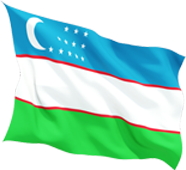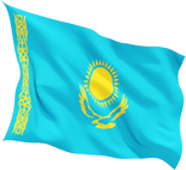Political parties are the most classical
institutions of democracy, and the democratic principle of political pluralism
contributes to the existence of a variety of political forces with competition
between them for representation in state bodies.
The most important mechanism that allows parties to function in a democratic
system is the competition in the public political sphere for the right to
represent the interests of society and be the bearer of political power.
Inter-party competition integrates many indicators that reflect the state of
affairs in society: it is directly connected with the mechanisms of the
electoral process, the forms of political mobilization, and the
methods of social control over the actions of the authorities. In other
words, the nature of inter-party competition becomes the most accurate
indicator of the degree of democracy of political
processes. Inter-party competition manifests itself in the form of
electoral rivalry, in the development and presentation of party programs to
the electorate, in the style and methods of party campaigning, in coalition
strategies, etc.,
In the Republic of Uzbekistan, particularly in recent years, on the initiative
of President Shavkat Mirziyoyev, truly large-scale and fundamental
reforms have been implemented in the modernization of the political system,
strengthening the role of political parties in further democratizing state
governance and building the foundations of a strong civil society.
Thus, in the Development Strategy of New Uzbekistan for 2022-2026,
the strengthening of the role of the chambers of the Oliy Majlis and
political parties in the consistent continuation of reforms in the country is
identified as the 7th priority goal in the field of building a people’s
state by elevating human dignity and furtherance a free civil
society. Achievement of this goal is provided by further
strengthening the role of the chambers of the Oliy Majlis and
political parties in developing effective measures for the comprehensive study
and resolution of problems in all spheres and by strengthening the
participation of parliaments in ensuring the unconditional and full
implementation of adopted laws in practice.
Government pays special attention to strengthening the role of
political parties in the work of the representative authorities, especially the
lower chamber of Parliament, the Legislative Chamber of
the Oliy Majlis, in which factions of all five political parties are
represented – the centrist party “Movement of Entrepreneurs and
Business People – Liberal Democratic Party of Uzbekistan” (abbreviated
as UzLiDeP), the right-wing “Milly Tiklanish (National
Revival) Democratic Party of Uzbekistan” (UzMTDP), left-wing parties:
the “People’s Democratic Party of Uzbekistan” (XDP) and
the “Justice Social Democratic Party” (ASDP), as well as the
Ecological Party of Uzbekistan (EPU).
Following the 2004/2005 parliamentary elections, UzLiDeP is the
ruling party in the Legislative Chamber of
the Oliy Majlis, preserving this status in subsequent
parliamentary elections in 2009/2010, 2014/2015, and 2019/2020.
Currently, the balance of power in the lower chamber of parliament is
as follows: out of 150 deputies, 53 are representatives of UzLiDeP,
36 are UzMTDP, 24 are ASDP, 22- XDP, and 15 are EPU.
From 2005-2019, the UzLiDeP and the UzMTDP formed the
“Bloc of Democratic Forces”, and the XDP and
the ASDP are considered the parliamentary opposition.
Over the past seven years, there has been a significant increase in
inter-factional competition in the Legislative Chamber, which has been
reflected in all traditional parliamentary activities.
There is therefore a particular competition in the implementation of the right
of legislative initiative. In 2021, members of
the UzLiDeP faction initiated 4 bills, and members of
the UzMTDP faction initiated 3, the ASDP 2, and
the XDP 1. For the first time, the practice of inter-factional
debates during the discussion of draft laws was introduced. The principle
of not including on the agenda of the Legislative Chamber any bills that have
not been discussed in the political party factions has been strictly
observed.
As a result of the faction’s promotion of the interests of the
electorate in parliamentary debates, the Legislative Chamber in 2021
rejected 6 bills, including 1 bill and 1 draft resolution of the Legislative
Chamber on changing the boundaries of an administrative-territorial unit,
which was returned to the subjects of the right to initiate
legislation for revision. Moreover, after inter-factional debates, 2
bills were withdrawn by the developers themselves.
Particularly heated debates in the factions of the political parties were
caused by draft laws providing for amendments and additions in connection with
further improvement of the procedure of combating the legalization of
proceeds from crime, the system of protection of the rights of persons
subjected to narcological diseases, as well as the draft law
“On Social Entrepreneurship”. During the discussion of
these bills, the faction members emphasized that their content does not serve
the interests of the electoral part of the population of the Republic and does
not fully ensure the reliable protection of the rights and freedoms of all
citizens.
As a result, conciliation commissions were set up by the Legislative Chamber
and the Senate of the Oliy Majlis on all these bills, in the
work of which faction members took all the necessary steps to ensure that the
interests of their political parties’ electorates were fully satisfied.
An active inter-factional struggle is also being conducted in the field
of accountability of the government – the Cabinet of Ministers
of the Republic of Uzbekistan and other executive bodies to the parliament.
As a result, over the past 2021, the Legislative Chamber has dramatically
increased the number of parliamentary oversight events, many of which were
initiated by factions of political parties. In particular, 23 parliamentary
hearings were held at the initiative of the factions, including a presentation
by the Minister of Innovative Development of the Republic of Uzbekistan and
the head of the Service for Sanitary and Epidemiological Welfare and
Public Health on their work to protect public health during the
coronavirus pandemic at the initiative of the XDP.
Members of the factions of political parties in the Legislative Chamber took an
active part in 88 hearings of information from the heads
of government and management bodies, 47 studies of the
implementation of laws at the local level, and 35 monitoring events
to study the full and accurate implementation of the decisions of the
Legislative Chamber and its committees by the executive authorities.
At the initiative of the factions, 12 parliamentary requests (6 of them
by UzLiDeP, 2 to each – ASDP, XDP, and EPU) were
sent to officials, suggesting that issues raised by the electorate of political
parties, by individual voters., and reflected in the pre-election
platforms of the parties, should be immediately resolved.
The practice of preliminary discussion of candidates for the Cabinet of
Ministers at faction meetings has also helped to stimulate healthy
inter-factional competition. At these meetings, faction members
got the opportunity to directly put before the future member of the government
issues that are vital for the electorate of political parties and priorities in
the statutory documents of political parties.
Particular rivalry is noted in the issue of making deputy requests by members
of factions of political parties in the Legislative Chamber. During the
period under review, members of the UzLiDeP faction showed clear
leadership in this issue, who initiated more than half of the total number of
deputy requests (250 out of 462 deputy requests or 54.1%).
Thus, it can be stated that a civilized culture of inter-factional struggle is
gradually taking shape in the Uzbekistan parliament, the main aim of which
is to fully and comprehensively safeguard the interests of the political
parties’ electorate, implementation of the election promises declared by
the parties, reflection in domestic and foreign policy of their statutory
goals and objectives, and ultimately – increasing the role of political parties
in the further democratization of the country and modernization of the
economy and liberalization of all other areas of socio-political life in the
country.
Alimjon AKILOV,
Head of the Department of the Legislation and
Parliamentary Research Institute
under the Oliy Majlis of the Republic of Uzbekistan,
Doctor of Law, Professor

Генеральное Консульство
Республики Узбекистан В городе Актау










